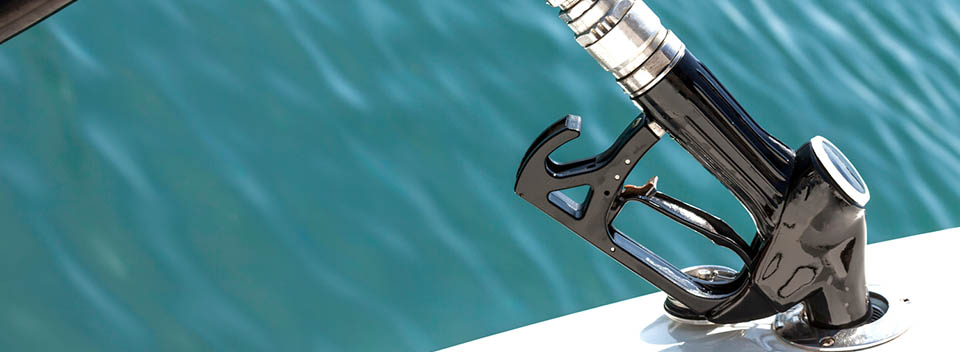I often read boating magazines. Occasionally, I find an article about ethanol and the destructive impact it’s having on the boating population. These pieces, without exception, have errors that make them not only wrong but also inherently misleading.
The message that is usually conveyed is that small amounts of ethanol in gasoline are destructive to boat motors, yet we do not hear exactly what the problem is. These fears are not associated with automobiles that can burn not just a 10% mixture but mixtures up to 85% ethanol before anything needs to be seriously modified on the engine. The main complaint with automotive use is that the manufacturers don't increase the compression ratio to make use of the full potential of the alcohol (large engines will get fewer miles per gallon with E85 because of this). Racing enthusiasts burn ethanol (in higher compression engines) for extra horsepower.
If the sky really is falling, what evidence is there? I too often hear that the small addition of an octane booster is the cause of all these repairs. I have never seen a boating related article that makes these accusations and includes specific (mechanical or chemical) evidence. Why is the cause of all this frustration not being pinpointed? Why can't a boat owner or mechanic detail why he believes (and can prove) it is a fuel issue? What parts in the engine are failing?
A discussion of boating issues with ethanol is useful. One difference I can think of is that marine fuel tanks and engines may sit for months without being used, whereas the family car is driven daily. Secondly, marine fuel systems are not sealed while automobile systems are. Another problem may be older marine systems with butyl rubber for fuel lines or fiberglass fuel tanks.
If we look at these differences individually, we can begin to understand the issue.
First is the problem with water in marine engine fuel systems. In order to understand what is going on one needs a bit of understanding about how water interacts with petroleum products, like gasoline, and how water interacts with ethanol. Chemists have an old axiom that “like dissolves like” with regard to polarity. That is, polar compounds dissolve other polar compounds and nonpolar compounds dissolve other nonpolar compounds. Water is polar, whereas gasoline is nonpolar. Thus, if a person mixes gasoline and water, the two liquids will separate into layers with the water on the bottom. This can cause major problems, as the water is obviously not combustible and will cause a motor to fail if it gets into the motor. Ethanol exhibits moderate polarity and does mix with gasoline. The ethanol, however, dissolves better in water. So if ethanol is added to a gasoline and water mixture, the ethanol will cause the water to become part of the mix instead of lying separately on the bottom. This gasoline/water/ethanol solution will burn in an engine with no problem. Products sold to fix the problem of water in the fuel are in fact alcohol.
How the water gets into the system in the first place is another question. Clearly, a sealed system is better to prevent water intrusion than a non-sealed system, and obviously marine systems operate in an environment that has a lot more potential for exposure to water than an automotive system does. In either case, condensation can be a significant source of water intrusion, particularly in a non-sealed system that is left to sit for long periods of time. Temperature swings that happen during the time the system is idle contribute to the problem. Keeping the tank full can help mitigate the problem. One point that should be made here is that ethanol will not absorb water from the atmosphere and introduce it into the fuel. If that were the case, gasoline stations would be having problems with their E85 tanks getting water build up and they are not. You can prove this to yourself by opening a bottle of vodka and seeing if it absorbs water from the air. It might evaporate, but it won’t absorb water.
Ethanol is an excellent solvent and if an engine has a build up of gum or other “gunk” (from gasoline) the ethanol can clean these and the particles can cause fuel filter clogging. If this happens, changing the filters will be necessary. This problem will disappear once the engine is clean, usually after 2-3 tanks of fuel containing ethanol. If you have a clean engine this will not happen.
Rubber hoses failing are often mentioned as a problem with fuel containing ethanol. The automotive industry completely abandoned the use of butyl rubber for fuel lines in the early sixties. There should not be much of this stuff around, especially after government intervention in about '73 when it was pretty much banned in favor of material like nitrile, Tygon, Viton and other elastomers that have been used for hoses, seals, gaskets, etc. However, you can still see butyl rubber hose being sold as a gas line on the Internet by overseas manufacturers. A boat owner shouldn’t use these, regardless of the fuel being used.
Fiberglass fuel tanks can be affected by ethanol. The tanks most likely to be impacted were built before the mid-1980’s. But the use of ethanol containing fuel is not recommended in a fuel tank made of fiberglass unless the manufacturer can confirm that the tank was built to work with ethanol. ETHANOL WILL NOT affect aluminum, stainless steel or polyethylene tanks.

Bob Miller, Industry Consultant
Education: Bachelor of science in mechanical engineering, University of Nebraska, Lincoln, 1975. Masters in management, Salve Regina University, Newport, RI, 1986. Masters in international strategic studies, U.S. Naval War College, Newport, RI, 1986.
Career: Consultant since 2011. Plant manager, E Energy Adams, Adams, NE, 2007-11. Vice president of bulk manufacturing, Florida Distillers, Lake Alfred, FL, 1995-2007. Plant manager, Florida Distillers, Auburndale, FL, 1991-95. Production supervisor, Florida Distillers, Lake Alfred, FL, 1989-91. Commissioned officer, U.S. Navy carrier pilot, 1975-89. Enlisted petty officer, U.S. Navy Polaris submarine missile technician, 1968-75.

